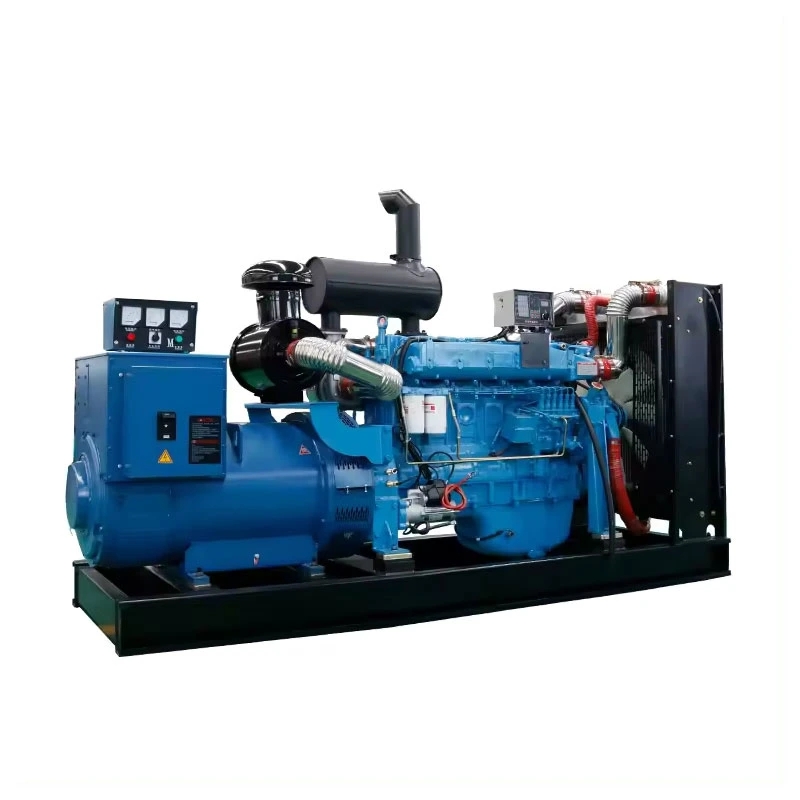Certification Analysis of Diesel Generators A Comprehensive Guide

Introduction
Diesel generators play a crucial role in providing backup power in various industries and sectors. They are reliable sources of electricity during power outages and emergencies. To ensure the safety, efficiency, and compliance of diesel generators, certification analysis is essential. This article will provide a detailed overview of the certification analysis process for diesel generators, covering the regulatory requirements, testing procedures, and key considerations for certification.
Regulatory Requirements for Diesel Generators
Certification analysis of diesel generators is governed by a set of regulatory requirements to ensure that these machines meet safety and performance standards. In many countries, diesel generators must comply with specific regulations and standards set by government agencies or industry organizations. These regulations cover various aspects of diesel generator design, installation, operation, and maintenance.
One of the key regulatory requirements for diesel generators is emissions standards. Diesel engines produce harmful pollutants such as nitrogen oxides (NOx), particulate matter (PM), and carbon monoxide (CO). To address these emissions, diesel generators must meet strict guidelines on pollutant levels set by regulatory bodies. Compliance with emissions standards is typically verified through emissions testing as part of the certification analysis process.
In addition to emissions standards, diesel generators must also comply with safety regulations and performance standards. These regulations cover aspects such as electrical safety, noise levels, fuel storage and handling, and environmental impact. Certification analysis ensures that diesel generators meet these regulatory requirements and are safe to operate in various settings.
Testing Procedures for Certification Analysis
Certification analysis of diesel generators involves a series of testing procedures to evaluate the performance, efficiency, and compliance of these machines. Testing is typically conducted by accredited laboratories or certification bodies that specialize in diesel generator analysis. The following are some of the key testing procedures involved in the certification analysis of diesel generators:
1. Emissions Testing: Emissions testing is a critical component of certification analysis for diesel generators. This testing involves measuring the levels of pollutants emitted by the diesel engine, such as NOx, PM, and CO. Emissions testing is conducted under various operating conditions to assess the environmental impact of the diesel generator and ensure compliance with emissions standards.
2. Fuel Efficiency Testing: Fuel efficiency testing is used to evaluate the efficiency of the diesel generator in converting fuel into electricity. This testing measures parameters such as fuel consumption, power output, and thermal efficiency to determine the overall efficiency of the generator. Fuel efficiency testing helps identify opportunities for improving the performance of the diesel generator and reducing operating costs.
3. Load Testing: Load testing is performed to assess the ability of the diesel generator to handle varying loads and provide consistent power output. During load testing, the generator is subjected to different load levels to simulate real-world operating conditions. This testing helps evaluate the stability, reliability, and performance of the generator under different load scenarios.
4. Noise Testing: Noise testing is conducted to measure the noise levels produced by the diesel generator during operation. Excessive noise levels can be a nuisance to nearby residents or workers and can indicate potential mechanical issues with the generator. Noise testing helps ensure that the generator complies with noise regulations and is suitable for use in noise-sensitive environments.
5. Diesel Generator For Sale : Environmental testing assesses the impact of the diesel generator on the surrounding environment, including air quality, water quality, and soil contamination. This testing helps identify potential environmental risks associated with the generator and ensures compliance with environmental regulations. Environmental testing is essential for diesel generators installed in environmentally sensitive areas.
Key Considerations for Certification Analysis
When conducting certification analysis of diesel generators, there are several key considerations that should be taken into account to ensure comprehensive evaluation and compliance with regulatory requirements. The following are some of the key considerations for certification analysis of diesel generators:
1. Compliance with Regulations: The diesel generator must comply with all relevant regulations and standards, including emissions standards, safety regulations, and environmental requirements. It is essential to verify that the generator meets the specific regulatory requirements applicable to its intended use and location.

2. Quality of Testing Facilities: The certification analysis should be conducted by accredited testing facilities or certification bodies with expertise in diesel generator testing. The testing facilities should have state-of-the-art equipment and experienced personnel to ensure accurate and reliable testing results.
3. Performance Assessment: The certification analysis should include a thorough assessment of the performance of the diesel generator, including fuel efficiency, power output, load handling capability, and reliability. Performance testing helps identify any deficiencies or areas for improvement in the generator's operation.
4. Maintenance and Service Records: It is important to review the maintenance and service records of the diesel generator as part of the certification analysis. Regular maintenance and servicing are essential for ensuring the proper operation and longevity of the generator. By reviewing maintenance records, any issues or maintenance needs can be identified and addressed.
5. Documentation and Reporting: A comprehensive certification analysis report should be prepared documenting the testing procedures, results, and compliance status of the diesel generator. The report should include detailed information on emissions levels, fuel efficiency, noise levels, environmental impact, and overall performance of the generator. This documentation is essential for demonstrating compliance with regulatory requirements and certification standards.
Conclusion
Certification analysis of diesel generators is a critical process that ensures the safety, efficiency, and compliance of these machines with regulatory requirements. By conducting thorough testing procedures and considering key factors such as emissions standards, performance assessment, and maintenance records, diesel generator operators can ensure that their generators meet the necessary certification standards. Accredited testing facilities and certification bodies play a crucial role in conducting certification analysis and providing reliable results to help operators make informed decisions about their diesel generators. By following best practices and regulatory guidelines, operators can maintain the reliability and performance of their diesel generators for various applications and industries.
